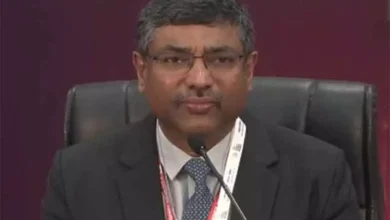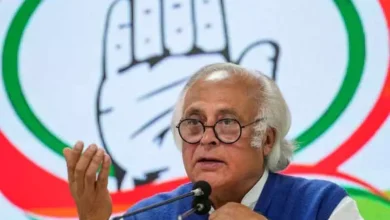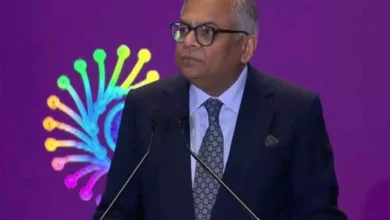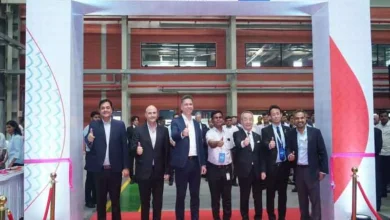Inside Toyota, Suzuki, Honda plans to ‘Make in India’, in pivot away from China

Japan’s top carmakers-Toyota Motor Corp., Honda Motor Co. Ltd., and Suzuki Motor Corp.-have lined up billions of dollars of investments to Make in India, in what is seen as a pivot away from China.
Toyota-the world’s largest carmaker-plans to invest $3 billion (about ₹26,000 crore) to expand its existing factory in Karnataka and set up a new one Maharashtra. A week ago, Reuters reported that the Innova maker plans to launch 15 new and refreshed models in India by the end of this decade.
Suzuki, which owns a majority stake in India’s largest carmaker Maruti Suzuki India Ltd., plans to invest up to ₹70,000 crore in India by FY30 to increase its production capacity to 40 lakh units per annum and regain 50% market share in the world’s third largest car market. The company aims to launch eight SUVs in India over the next 5-6 years.
Last week, Honda said it would make India a production and export hub for one of its planned electric cars.
Why Toyota-Suzuki want to Make in India?
It’s to do with China, and its EV onslaught.
A brutal price war among Chinese EV makers has made it difficult for global carmakers to turn a profit. At the same time, India has at least for now closed the doors on Chinese carmakers to set up manufacturing plants here. That works to the advantage of Toyota, Suzuki and Honda, which have well-entrenched retail and manufacturing operations in India.
“India is a good choice as a replacement market for China,” Julie Boote, auto analyst at Pelham Smithers Associates in London, told Reuters, citing low profit margins in China. “For the time being, the Japanese think it’s a much better market because they don’t have to deal with Chinese competitors.”
Moreover, India has cost-effective manufacturing, a vast labour pool as well as favourable policy to make cars in India for India and the world.
Japan’s annual direct investment in India’s transport sector jumped more than sevenfold between 2021 and 2024 to hit 294 billion yen ($2 billion) last year. At the same time, Japan’s direct investment in China’s transport sector fell 83% to just 46 billion yen ($300 million) last year.
Toyota India Plans
Toyota is working with Japanese and Indian vendors to lower cost and expand production of hybrid components. India is one market where it saw tight supply of hybrid parts amid a surge in demand this year.
It has localised its offerings, said an executive at a major Toyota supplier. “It is no longer about global specifications but about local ones.”
“The Indian market is extremely important and is set to grow in the future,” Toyota’s President Koji Sato told reporters at the Japan Mobility Show last week, noting many other automakers are paying attention to the market.
The planned $3-billion investment is aimed at increased production capacity to more than 10 lakh units per year by 2030. That, Toyota believes, will help it capture 10% market share in India, from 8% at present.
Honda India Plans
For Honda, India is the biggest market for its highly profitable two-wheeler business. The company wants to repeat the success in its four-wheeler unit, CEO Toshihiro Mibe told Reuters at the Japan Mobility Show. Honda’s Top 3 focus areas are the US, India and Japan, he said.
The maker of the City sedan wants to make India its production and export base for one of its “Zero series” electric cars, with one model to be exported to Japan and other Asian markets from 2027.
Suzuki India Plans
Suzuki’s $8 billion investment in India is to mainly expand its local production capacity to 40 lakh cars a year, from some 2.5 lakh cars now. Its Indian business, Maruti Suzuki, is the country’s top-selling carmaker and largest car exporter.
“We would like to grow India as Suzuki’s global production hub,” President Toshihiro Suzuki told reporters on the sidelines of the Japan Mobility Show. “We would like to enhance exports from India.”
Local companies Tata Motors Ltd. and Mahindra & Mahindra Ltd. have been expanding their offerings with SUVs, taking market share from Maruti Suzuki. Before the pandemic, Suzuki had about 50% of the passenger car market.
Make in India, for the world
While India’s GDP growth rate has averaged at 7-8% over the past three years, its car market has grown faster at 9-10% during the same time.
The government wants to sustain the momentum by luring more foreign car makers to ‘Make in India’-Prime Minister Narendra Modi’s flagship scheme. It is rolling out incentives to get them to produce goods for both domestic and global markets.
India manufactured about 50 lakh cars in FY25, of which almost 800,000 were exported and the remainder sold in the domestic market. Domestic sales grew about 2% from a year ago, while exports rose 15%.
The government limits on Chinese investment are effectively another form of help, making it difficult for new Chinese carmakers to enter and existing ones like BYD to expand.
“India’s protectionist stance towards neighbouring countries is a blessing in disguise for Japanese carmakers,” said S&P Global Mobility’s Gaurav Vangaal. “Because of this, they see an opportunity to expand investment in India, enhancing their cost competitiveness against domestic players.”
To be sure, India is never an easy market. Foreign automakers such as Ford and General Motors previously struggled there and eventually exited.









